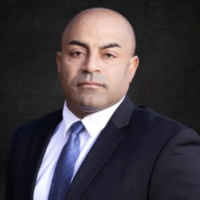Bosque Farms Felony Lawyer, New Mexico
Not enough matches for Bosque Farms Felony lawyer.
Below are all Bosque Farms Criminal lawyers.
Joshua A. Goldberg
✓ VERIFIEDJoshua Goldberg is a practicing lawyer in the state of New Mexico who handles criminal matters.
Leonard J. Foster
✓ VERIFIEDLeonard J. Foster accepts cases involving Personal Injury, Criminal Law, Business Law, & Native Peoples and is an active Lawyer practicing in Albuquer... (more)
Ryan D. Baughman
✓ VERIFIEDThe Law Office of Ryan D. Baughman, LLC is a law office based out of Albuquerque, New Mexico. The office is led by solo-practitioner Ryan D. Baughman,... (more)
Eric Raymon
✓ VERIFIEDIn his years of extensive legal experience, Mr. Raymon has handled a wide array of cases, always striving to provide the best service to his clients. ... (more)
Rachel Walker Al-Yasi
✓ VERIFIEDCriminal Lawyer proudly serving Albuquerque, New Mexico and the surrounding areas. Please call 800-578-4330 to speak with Rachel Walker Al-Yasi today.... (more)
Mark A. Keller
✓ VERIFIEDMark A. Keller and his team of attorneys provide aggressive legal defense for people in Albuquerque, the surrounding area and throughout the State of ... (more)
Todd J. Bullion
✓ VERIFIEDI have extensive trial experience having tried over forty (40) cases in my career ranging from simple DWI to First Degree Murder. I have worked in hig... (more)
Albert B. Lassen
FREE CONSULTATION
CONTACT







